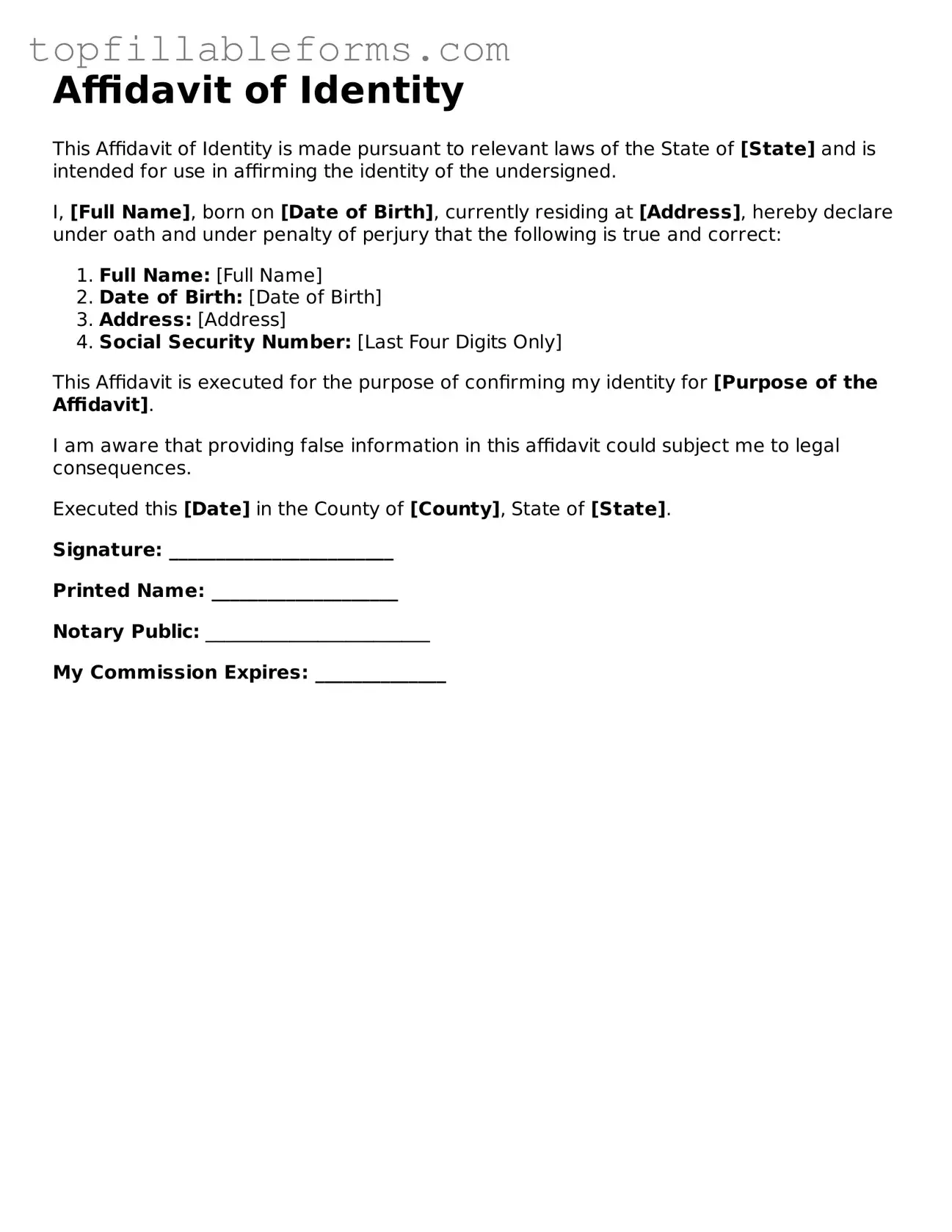Free Affidavit of Identity Form
The Affidavit of Identity form is a legal document used to verify a person's identity. It serves as a sworn statement, affirming that the individual named in the affidavit is indeed who they claim to be. This form is often required in various legal and administrative processes to prevent fraud and ensure accuracy.
Open Affidavit of Identity Editor Here

Free Affidavit of Identity Form
Open Affidavit of Identity Editor Here
Finish the form now and be done
Finish your Affidavit of Identity online by editing, saving, and downloading fast.
Open Affidavit of Identity Editor Here
or
▼ PDF File
